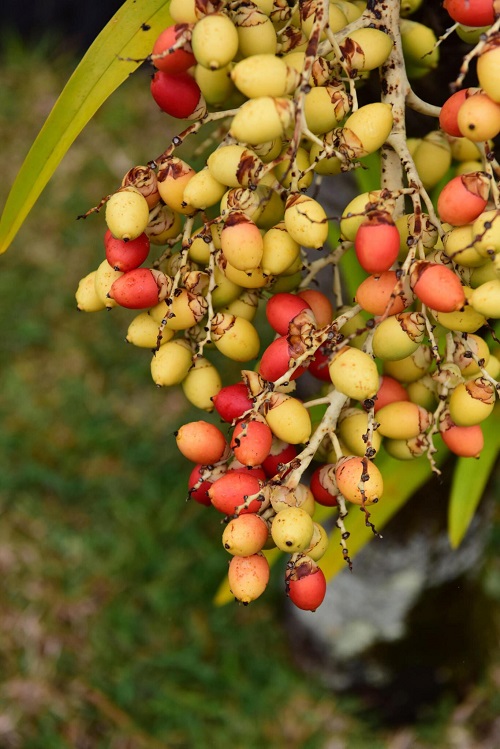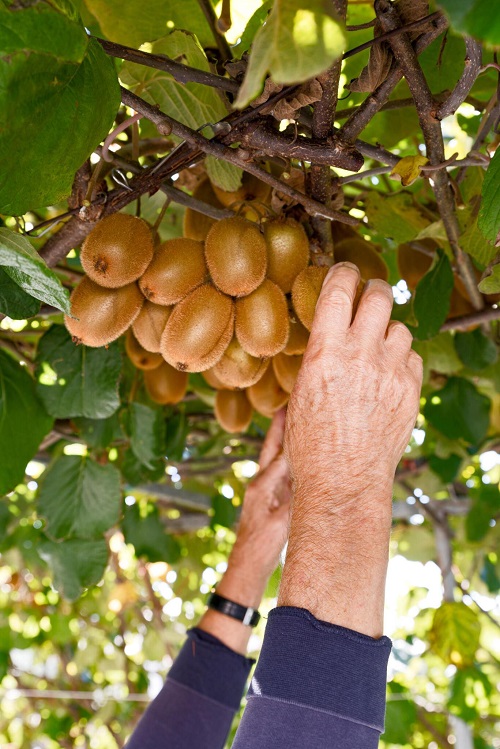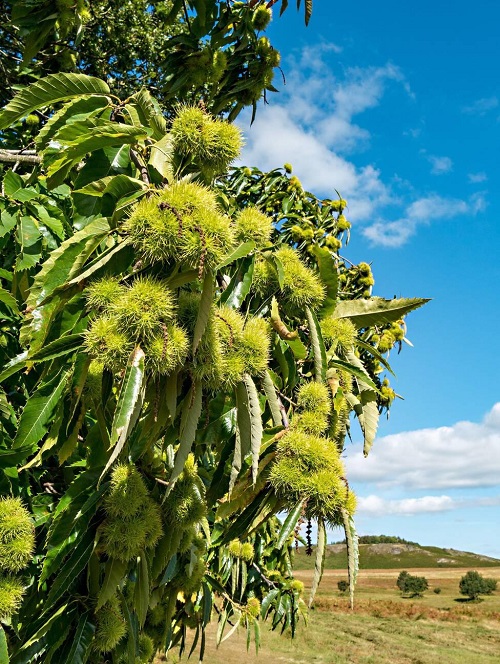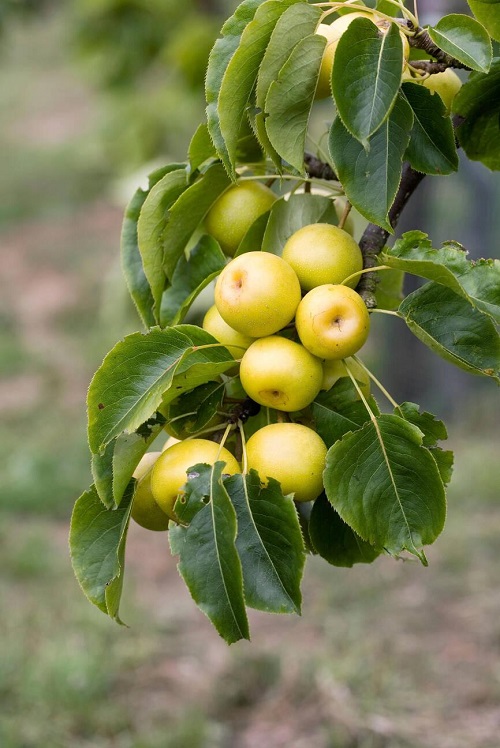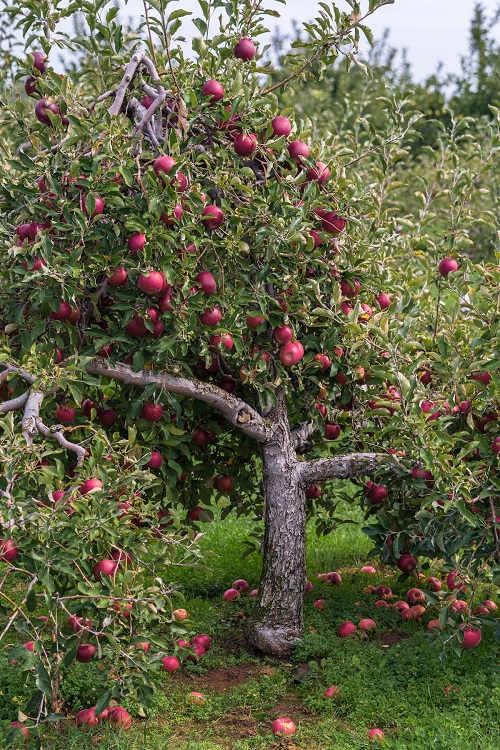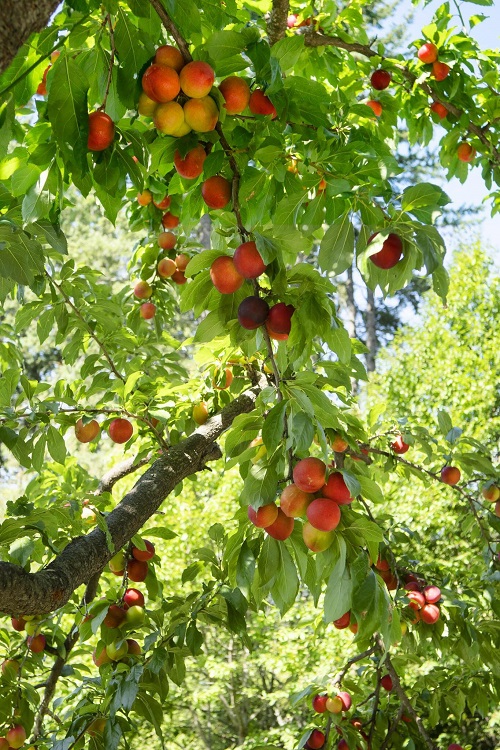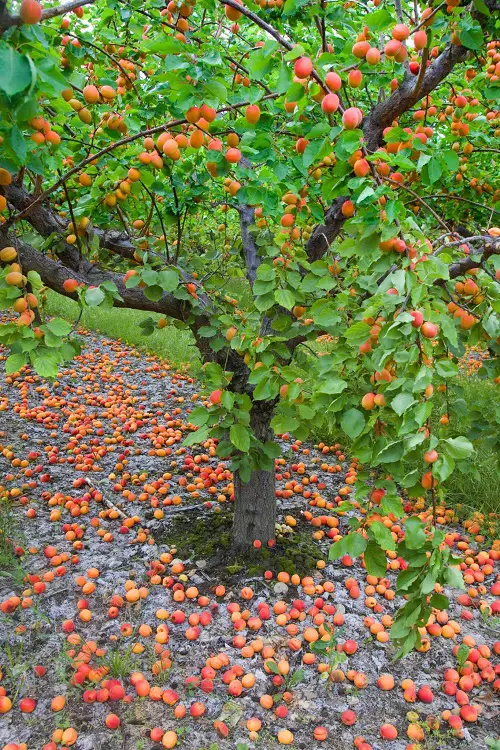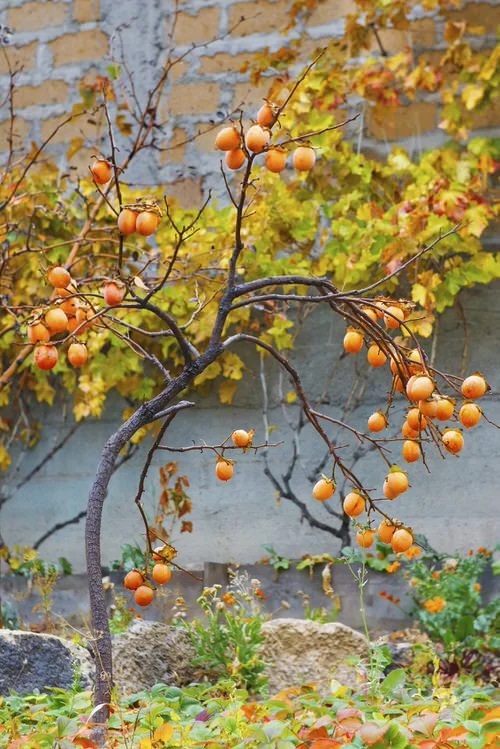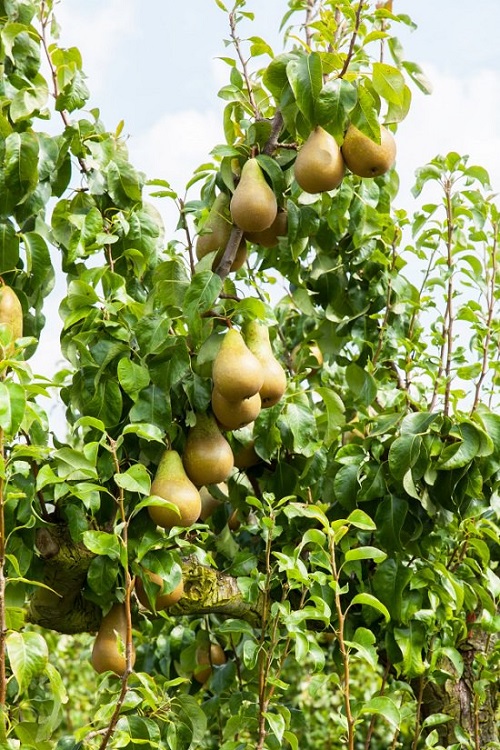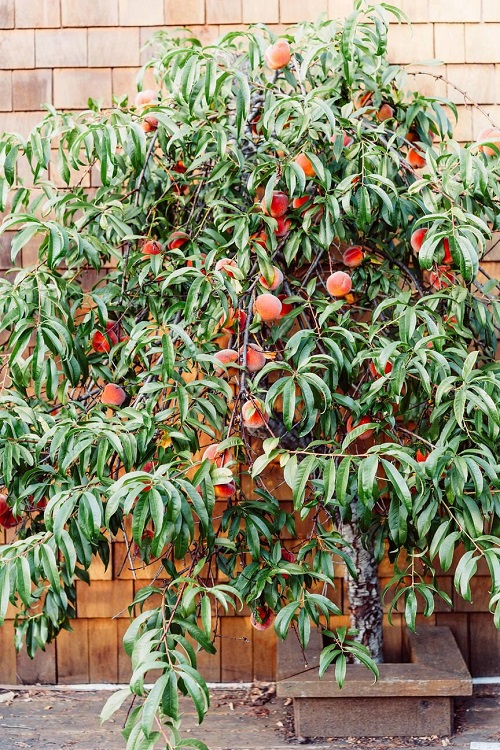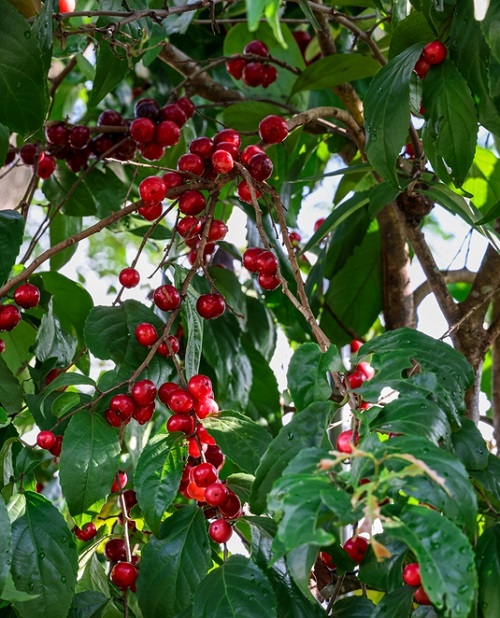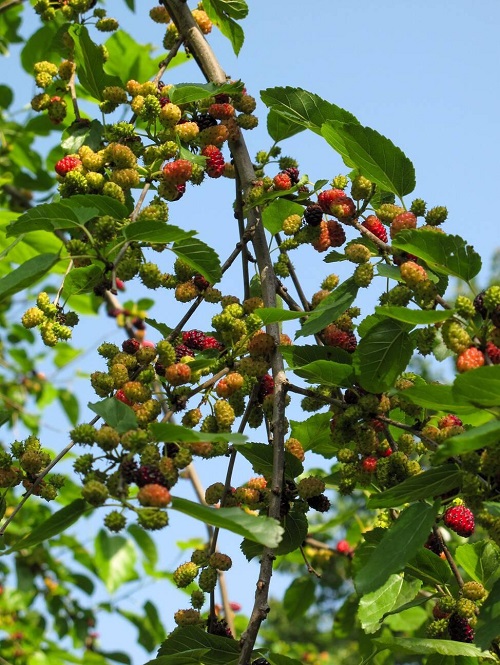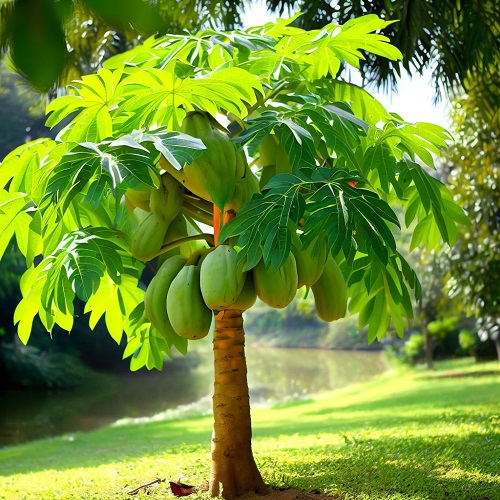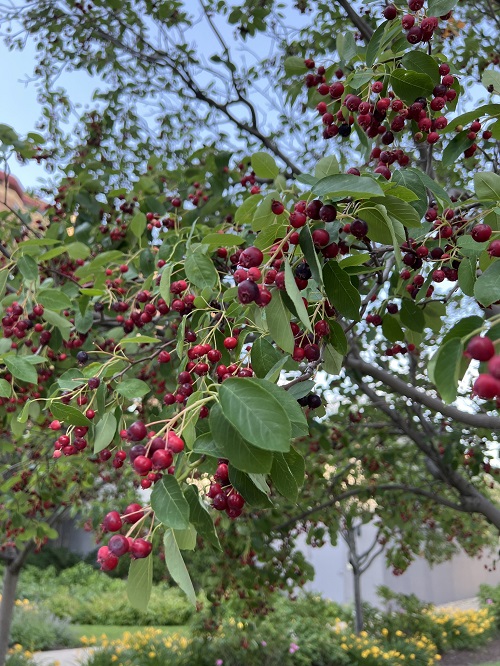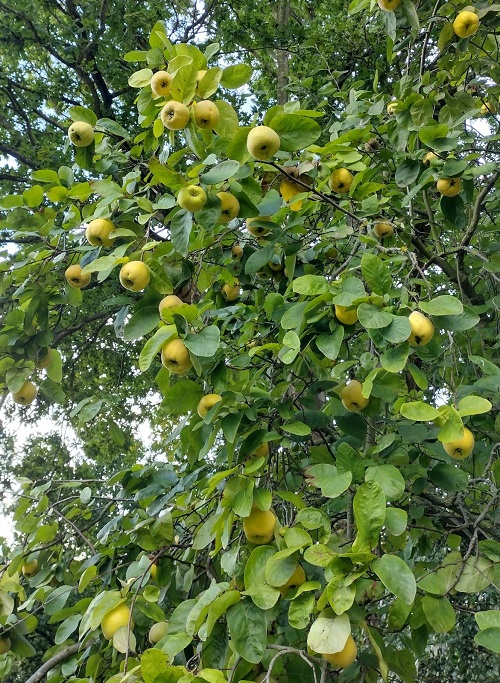Check out the different varieties of Fruit Trees that Grow in NC to see what makes each one unique among the other types available.
North Carolina’s diverse climate makes it great for growing many types of fruit trees, ranging from apples to pears. If you want to try growing more varieties, keep reading to know your options!
Climate in North Carolina
North Carolina has the Atlantic coast in the east side, and the Appalachian Mountains in the west, making it quite diverse in the temperature range! The state falls within USDA Zones 6 through 8, indicating a range of minimum winter temperatures from -10°F to 20°F (-23°C to -6°C) – this will help you out to keep an eye on the plants that are sensitive to frosts.
In summer, the state experiences temperatures ranging from 85°F to 90°F (29°C to 32°C). During winter time, the highs range approximately 50°F to 60°F (10°C to 16°C), while the lows hover between 30°F to 40°F (-1°C to 4°C). However, the mountainous areas can drop as low as -34°F (-37°C).
Fruit Trees that Grow in NC
1. Jujube Tree
Botanical Name: Ziziphus jujuba
Popular Varieties: Li, Lang
Also popular as Chinese dates, they are resilient to drought and flourish in NC’s varied climate. Their fruit is sweet and used in many preparations.
2. Kiwi Vine
Botanical Name: Actinidia spp.
Popular Varieties: Hardy kiwi, or elf-fertile ‘Issai’
Kiwi fruit vines, suitable for NC’s milder zones, produce sweet, or tangy fruits. You may have to protect the plant from frost if you live in a cold region.
3. Chestnuts
Botanical Name: Castanea
Popular Varieties: Nanking, Meiling, or Kuling
Chestnuts are a prized addition to NC gardens. They thrive in the warm atmosphere, providing both beautiful foliage and nutritious nuts.
4. Asian Pears
Botanical Name: Pyrus pyrifolia
Popular Varieties: Warren, Hosui, 20th Century, Shinseiki
Pear trees in North Carolina face disease and pest challenges – you can go for Warren Pear as it is blight resistant. Also, regular pruning is necessary for good fruit yield.
5. Pecans
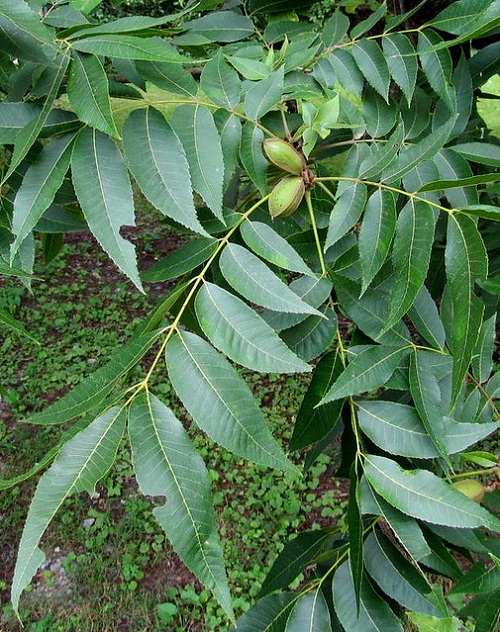
Botanical Name: Carya illinoinensis
Popular Varieties: Cape Fear and Pawnee (Type I)
Pecans are highly popular in southern NC cuisine and thrive well in the state’s climate. Just ensure to water the plant regularly.
6. Apple Tree
Botanical Name: Malus domestica
Popular Varieties: Red Delicious, Gala, Golden Delicious, Fuji, Honeycrisp
Apple trees are a great choice for NC – they just need a little winter pruning and spring mulching. The tree will give you plenty of fruits from late summer to fall!
7. Nectarine Tree
Botanical Name: Prunus persica var. nucipersica
Popular Varieties: Fantasia Yellow, Goldmine White, Sunglo or Redgold
These trees grow rapidly in NC’s warm summers – make sure to prune them to ensure good sunlight penetration and air circulation to keep diseases at bay.
8. Apricot Tree
Botanical Name: Prunus armeniaca
Popular Varieties: Blenheim Apricot, Gold Kist Apricot, or Royal
Apricot trees are a bit harder to grow in NC, but they are worth it! Keep the pruned and safe in winter – also, good sunlight exposure is a must.
9. Lemon Tree
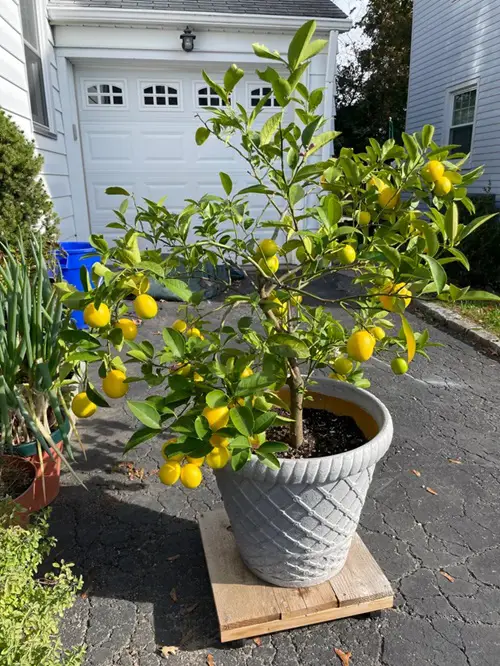
Botanical Name: Citrus limon
Popular Varieties: Improved Meyer, Eureka, Lisbon, or Meyer lemon
Lemon trees produce zesty, tart fruits and white blossoms. They thrive in warmer climates, where the sunlight is abundant – at least for 5-6 hours everyday. Growing it in a container is recommended.
10. Persimmon Tree
Botanical Name: Diospyros spp.
Popular Varieties: Fuyu, Chocolate, Coffeecake, Hachiya
Easy to grow in North Carolina, persimmon trees are pest-resistant and adaptable to most soils. They benefit from annual pruning so be mindful!
11. Pear Tree
Botanical Name: Pyrus communis
Popular Varieties: Bartlett or Anjou
Pear trees can be grown with apples in NC – this way, you’ll have two fruits! They enjoy a slightly cold weather with a few hours of sunlight.
12. Plum Tree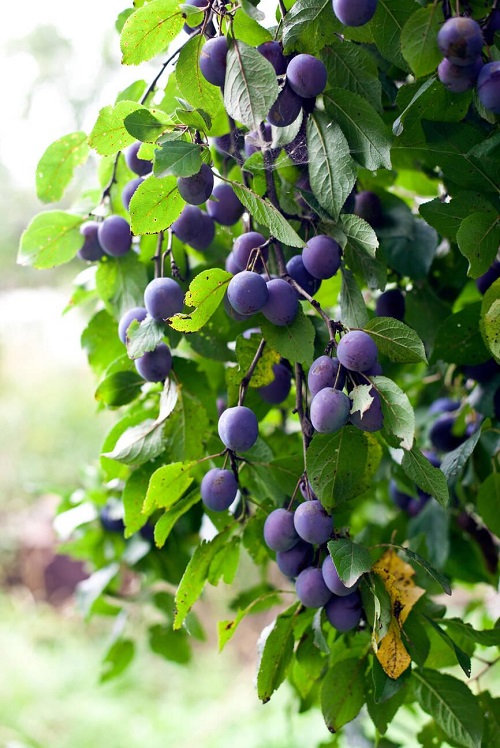
Botanical Name: Prunus domestica
Popular Varieties: Santa Rosa Plum, Methley Plum, Damson, or Japanese
These trees grow well in NC but have short lifespan due to humidity – some varieties may also be sensitive to extreme frost in some areas.
13. Peach Tree
Botanical Name: Prunus persica
Popular Varieties: Elberta Yellow, Suncrest Yellow, Biscoe, Candor, or Norman
Peaches grow well in warm summers in NC – these also not pose challenge to maintain even when the weather goes a little cold. Container specimens will be easy to handle.
14. Fig Tree
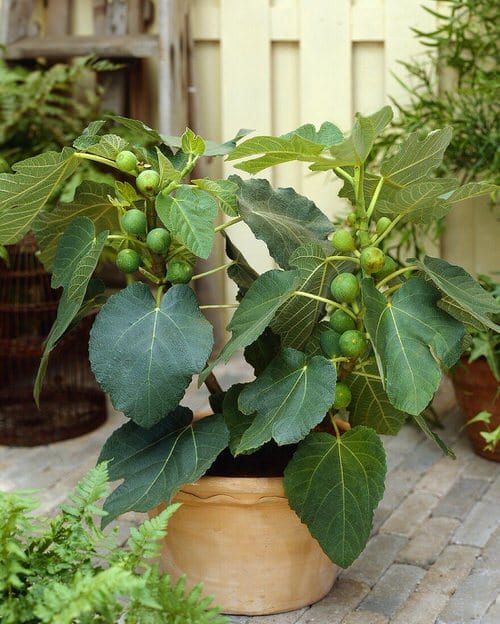
Botanical Name: Ficus carica
Popular Varieties: Brown Turkey, Black Mission, Kadota, or Chicago
Fig trees are early fruit bearers, so it makes them a good choice! You may have to prune it regularly to keep pests issues in check. These are also champs in surviving low temperatures.
15. Cherry Tree
Botanical Name: Prunus avium
Popular Varieties: Stella, Montmorency, Bing
As these trees flourish in cold winters and mild summers, NC’s climate is home to them! You’ll surely enjoy plenty of tat fruits by the late spring!
16. Pomegranate Tree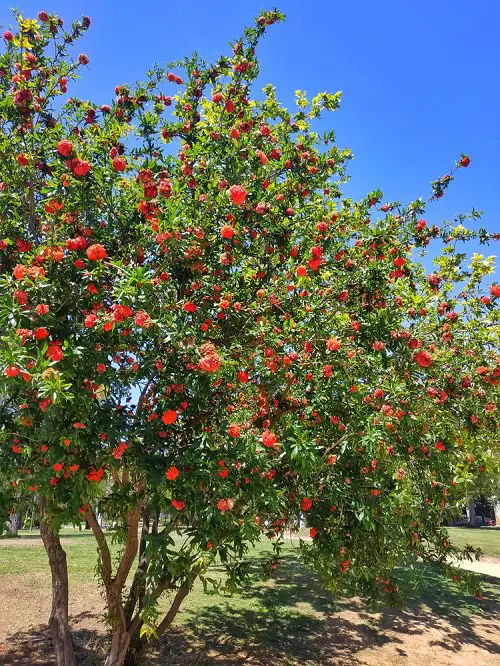
Botanical Name: Punica granatum
Popular Varieties: Wonderful, A.C. Sweet, Desertnyi or Granada
Pomegranates grow well in parts of North Carolina, especially in the coastal areas where there is plenty of humidity, warmth, and sun! Protect these plants from extreme cold.
17. Mulberry Tree
Botanical Name: Morus spp.
Popular Varieties: Red Mulberry, Illinois Everbearing, Pakistan, or Dwarf Everbearing
Mulberry trees produce sweet berries only when they get ample sunlight and watering – both of which are abundant in NC!
18. Pawpaw Tree
Botanical Name: Asimina triloba
These trees are native to NC and bear fruits reminiscent of bananas or mangoes. Susquehanna’ and ‘Shenandoah’ varieties are well suited to the local gardens.
19. Grapes
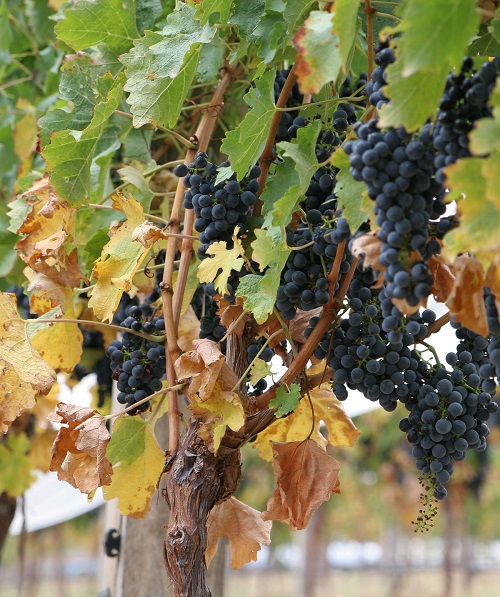
Botanical Name: Vitis spp.
Popular Varieties: Ruby Seedless, Flame Seedless, Suffolk Red, Chardonnay
Grapevines thrive across North Carolina as the climate is a godsend for these vines – they need ample watering and good sunlight for best fruits.
20. Lime
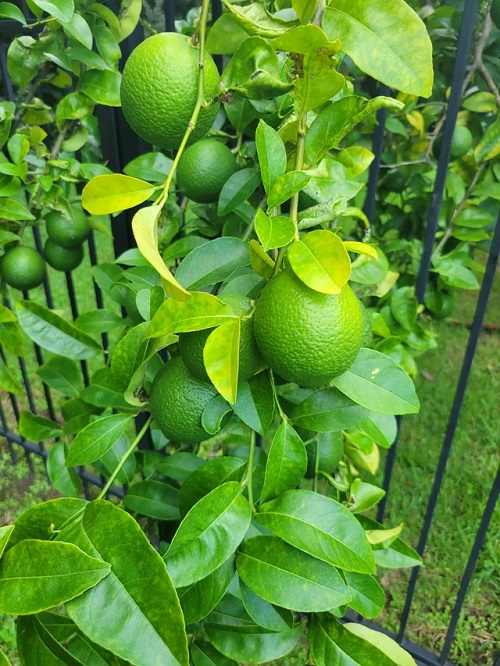
Botanical Name: Citrus × aurantiifolia
Popular Varieties: Key, Mexican, Bearss, or Tahiti
Citrus trees thrive in North Carolina’s warm summers but need protection in winter. They do well in containers, making them ideal for indoor/outdoor growing. Just ensure they get plenty of warmth and direct sunlight.
21. Serviceberry
Botanical Name: Amelanchier
Popular Varieties: Common serviceberry, Saskatoon, Serviceberry or Shadblow
In North Carolina, it’s commonly referred to as “Sarvis” and grows exceptionally well in the hot environment. You’ll have to protect it from the old though.
22. Quince
Botanical Name: Cydonia oblonga
Popular Varieties: Old Red or Orange Delight
These shrubs are hardy throughout North Carolina the only thing you need to be beware of is the Fire Blight disease to ensure the best fruits.


